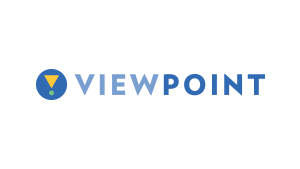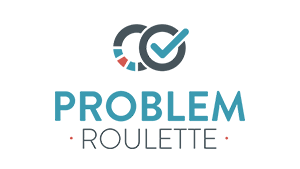Hannah Brauer, Communications Writing Fellow
@brauhan
Each year, the University of Michigan Office of the Provost, Center for Research on Learning and Technology (CRLT), and University Library honors five innovative projects that aim to improve student learning with the Provost’s Teaching Innovation Prize (TIP). The winners were recognized Monday at the annual, campus-wide “Enriching Scholarship” conference including two digital tools in our current portfolio (ViewPoint and Problem Roulette) and one graduated tool (M-Write). We are excited about the recognition of our team’s tireless efforts working with faculty innovators on these award-winning tools.

ViewPoint

ViewPoint is a digital simulation tool created by Professor Elisabeth R. Gerber, Jack L. Walker, Jr. Collegiate Professor of Public Policy in the Ford School of Public Policy. This platform provides customized, hands-on role-playing simulations that allow students to experience strategy development, collaboration, advocacy, and communication.
Gerber began working on ViewPoint three years ago after using policymaking simulations in her own classroom for many years. As her simulations became more complicated and difficult to manage manually, she reached out to the Office of Academic Innovation for help.
“I had been thinking about some version of ViewPoint for many years but did not have the knowledge or skills to do the programming, user experience design, etc.” she said.
Through her partnership with Academic Innovation, the tool allowed Gerber’s students to gain hands-on experience with policymaking.
Jackson G. Voss, U-M Ford School of Public Policy ‘18, recommended Gerber for the award after using ViewPoint for a policy negotiation activity in the three-day Integrated Policy Exercise (IPE) simulation for master’s students.
“Basically, we held a simulation premised on the government making an important decision, with students role-playing as elected officials, high-level government employees, lobbyists, interest group leaders, and journalists,” he said.
Voss received his Master’s of Public Policy in 2018 and now works as a professional staff member in the Washington, D.C. office of U.S. Senator Gary Peters. He noted Gerber’s exercise was the best preparation for his position on the Hill.
“IPE is largely about balancing the interests of a wide-array of people and groups with what you think is the best thing to do from a moral, political, or policy perspective — and that’s largely what I try to help do here in Washington,” he said.

While Gerber initially envisioned ViewPoint as a way to create and run simulations in her own classroom, the tool is now expanding into a powerful teaching pedagogy more accessible to a variety of instructors. Multiple institutions currently use the tool, including the U-M School of Education, Public Health, Social Work and U-M Flint, as well as UC Merced, Boston College, Stanford, and Ball State University.
Professor Daniel Hummel, Assistant Professor of Public Administration at U-M Flint, uses ViewPoint in his “Politics, Policy and Public Administration” course in the Master of Public Administration degree program. In the course, students learn about the policy process in the state of Michigan and participate in simulations based on actual state legislation, after which they must produce a final bill for the Governor to sign.
Before using ViewPoint, Hummel found teaching the policy process through lectures and readings to be difficult.
“I noticed a limitation in this approach as the process is quite complex and abstract,” he said.
Since implementing the tool, Hummel has noticed a significant difference in student engagement.
“The energy in the classroom increases when we’re doing the simulation,” he said. “It’s learning by doing.”
Gerber said she is honored to receive the TIP award and feels proud to be part of the team that created this powerful tool.
“When I lead students through a role playing simulation, I see them learning in real time: actively engaging with new ideas and situations, working together to solve problems, grappling with unfamiliar perspectives,” she said. “ViewPoint has the potential to bring this profound learning experience to a much larger and diverse pool of students.”
Problem Roulette

Problem Roulette is a study tool offering access to previous exam problems for selected courses at U-M. By giving students equal access to prior exams, Problem Roulette saves instructors the time normally devoted to uploading old exams every semester and allows students to assess their problem solving accuracy and speed as they develop subject competency.
Professor August (Gus) Evrard, U-M Arthur F. Thurnau Professor of Physics and Astronomy, created the tool in 2011 when he noticed a need for equal access to study materials for courses. He reached out to Academic Innovation to continue developing and expanding the tool, which led to the launch of a new version in Fall 2017.
“The [Academic Innovation] service made dramatic changes to the front- and backends,” Evrard said. “[Students now have] multiple study mode options and a new Study Group feature [in Problem Roulette] allows multiple students to work in synchrony on a set of problems. The backend has brought all the content together into a single relational database, and the service now connects to other student data sources which allows us to personalize the experience.”
Professor Brenda Gunderson, Senior Lecturer in the U-M Department of Statistics, said she endorses the tool for students in her “Statistics 250 – Introduction to Statistics and Data Analysis” course.
“After students are introduced to a new topic in lecture… they need more practice to help both solidify their acquired knowledge and identify areas or concepts that they need to strengthen,” she said. “Problem Roulette is an awesome, low stakes, high payoff tool for productive practice.”

Jon Reid, U-M College of Literature, Science, and the Arts ’20, found the tool beneficial while studying for his Statistics 250 course and recommended Problem Roulette for the TIP award.
“Stats 250 is a notoriously difficult class at the University of Michigan, and as a History major, I was very anxious in preparation for the exams,” Reid wrote in his letter of recommendation. “Problem Roulette was incredibly helpful in a group setting. With their innovative group work feature, I would virtually meet up with friends in the class and we would work on the same problems at the same time.”
Not only did he find the group feature to be helpful, but the tool made individual studying more efficient as well, according to his letter.
“I could identify areas of weakness during my studying,” wrote Reid. “I could target these weaker sections by reviewing my notes and then return to Problem Roulette to see if my understanding of these topics improved.”
Evrard said he is excited to to receive the TIP award for his work on the tool.
“It helps justify a lot of work by many people on this campus since 2012,” he said.
Since its creation, Problem Roulette has served more than 7 million problems to more than 20,000 students across eight introductory courses at the University of Michigan. But Evrard said he isn’t finished.
“The work’s not over,” he said “There’s more to be done!”
What’s next?
The Provost’s Teaching Innovation Award provides $5,000 to winners, which is designed to allow Gerber and Evrard to enhance their tools into the future.
“We are hoping to build out more simulation content [for ViewPoint],” said Gerber. “Instructors can start with a [prepared] simulation template and adapt it to their own unique classroom needs.”
For Problem Roulette, Evrard envisions the tool expanding further than U-M.
“I imagine a future where a [Problem Roulette]-like service exists on many campuses, each built on authentic local content but all committed to openly sharing student engagement data for the Learning Analytics community to interrogate,” he said.
Faculty looking to partner with our office on an innovative project in support of personalized learning at scale, curricular innovation, learning analytics, or public engagement are encouraged to explore the Academic Innovation Fund proposal process. Faculty interested in implementing ViewPoint, Problem Roulette, or one of our other digital tools in their classroom can reach us at [email protected].


